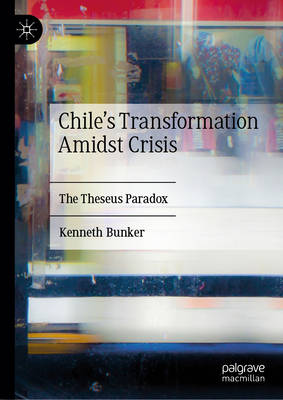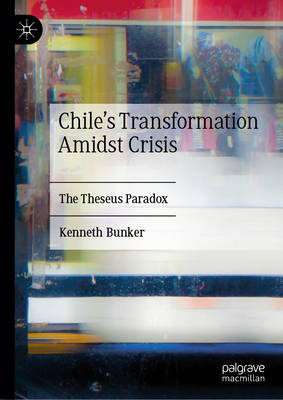
Je cadeautjes zeker op tijd in huis hebben voor de feestdagen? Kom langs in onze winkels en vind het perfecte geschenk!
- Afhalen na 1 uur in een winkel met voorraad
- Gratis thuislevering in België vanaf € 30
- Ruim aanbod met 7 miljoen producten
Je cadeautjes zeker op tijd in huis hebben voor de feestdagen? Kom langs in onze winkels en vind het perfecte geschenk!
- Afhalen na 1 uur in een winkel met voorraad
- Gratis thuislevering in België vanaf € 30
- Ruim aanbod met 7 miljoen producten
Zoeken
Omschrijving
This book is a comprehensive analysis of Chile's political and economic evolution, particularly focusing on the challenges of constitutional reform and systemic overhaul in emerging democracies. It explores themes of neoliberalism, governance, and reform under instability, using Chile as a case study to illuminate the broader implications for countries in the Global South. Drawing on institutional theory, political economy, original data, and comparative analysis, it unpacks the roots of Chile's crisis: party system fragmentation, voter-party erosion, rupturist rhetoric, and elite misdiagnoses. It is relevant to scholars, policymakers, and risk analysts seeking to understand the complexities of democratic transitions, offering lessons on balancing the rewards of change with the risks of instability. At its core, the book sets out to solve the problem of how to effectively implement constitutional and systemic reforms in a way that promotes stability, equity, and long-term success.
Specificaties
Betrokkenen
- Auteur(s):
- Uitgeverij:
Inhoud
- Aantal bladzijden:
- 341
- Taal:
- Engels
- Reeks:
Eigenschappen
- Productcode (EAN):
- 9783031964626
- Verschijningsdatum:
- 10/11/2025
- Uitvoering:
- Hardcover
- Formaat:
- Genaaid
- Afmetingen:
- 148 mm x 210 mm
- Gewicht:
- 597 g

Alleen bij Standaard Boekhandel
+ 488 punten op je klantenkaart van Standaard Boekhandel
Beoordelingen
We publiceren alleen reviews die voldoen aan de voorwaarden voor reviews. Bekijk onze voorwaarden voor reviews.









